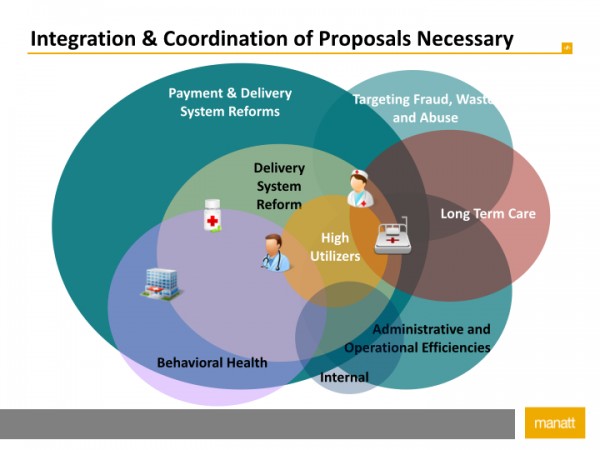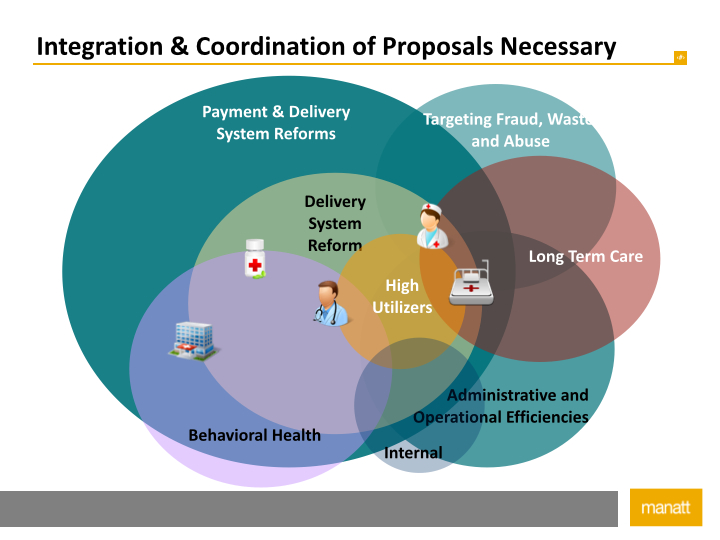 The 7th Annual Budget Policy Conference, a fundraiser for the Economic Progress Institute (EPI), had a timely theme: “Medicaid on the Move.”
The 7th Annual Budget Policy Conference, a fundraiser for the Economic Progress Institute (EPI), had a timely theme: “Medicaid on the Move.”
Since Governor Gina Raimondo announced a Medicaid crisis in February and the creation of a working group of “27 members from across health care, business, state government and community and nonprofit organizations” to deal with the crisis, the idea of “Reinventing Medicaid” has become a central part of the state’s 2016 budget process.
Medicaid is a state and federally supported system of health care that targets the most vulnerable and least represented people in our community, i.e. children, low income adults, the elderly and those with mental or physical handicaps. So special attention must be paid to the process of “reinventing” the system and therefore an appropriate target for a progressive economic institute such as EPI to address.
Governor Raimondo gave the opening address to the breakfast crowd, mostly made up of medical policy wonks and EPI supporters. She used the opportunity to press for a $10.10 minimum wage and for an increase in the earned income tax credit from 10 to 15 percent, possibly her two most progressive ideas in her 2016 budget proposal.
Moving onto Medicaid, Raimondo insisted that her goal in pulling together the working group is “not about kicking people off Medicaid” but “getting people cared for in the lowest cost environment.”
Raimondo acknowledged that the EPI and many of those in the audience are more concerned with social justice and economic justice than they are with short term budget fixes when she said, near the end of her speech, “Your stubborn idealism is a good thing for Rhode Island, so don’t lose it.”
Linda Katz, policy director and co-founder of the EPI, spent 14 minutes introducing the audience to the basic facts about Medicaid. In the video below I’ve combined the slides from her presentation with the talk she gave.
Katz is a member of the Reinventing Medicaid working group. The first weeks of work by the working group, Katz suggested, was preliminary. Now, as the working group prepares to move ahead and plan the implementation of the ideas presented, Katz says that she’s “looking forward to part two, where we take a deeper dive into Medicaid.”
Cindy Mann, former Medicaid Director in the Obama Administration, began her talk noting that this July will mark the 50th anniversary of Medicaid. Medicaid, says Mann, “is constantly reinventing itself.”
Over the course of her talk Mann explained exactly who Medicaid serves, and why Rhode Island is in many ways both an outlier and a leader in the way we administer the program. In the video below I’ve combined the slides from her presentation with the talk she gave.
For instance, “Rhode Island has, as a population, more elderly and disabled” than many other states, said Mann. Three percent of our Medicaid enrollees account for 70 percent of our Medicaid spending.
Mann made a special point to mention the medical care of the incarcerated, surely the population our society seems least vested in. When people in our prisons require outpatient care, that is, medical services the prison hospital is unable to meet, Medicaid covers the expense. Mann maintained that the state should make sure that “no one leaves jail without being assessed for health care coverage.”
Former Lt. Governor Elizabeth Roberts, who Governor Lincoln Chafee tasked with setting up the state’s health care exchange and who Raimondo put in charge of the working group, spoke last.
Roberts said that she and the working group instead worked to reform the system. “We did not remove benefits,” said Roberts. In addition to the recommendations of the working group, Roberts feels that there needs to be a pay increase for certified nursing assistants and home health care workers, who are being squeezed economically.
Roberts also agreed with Katz about the second phase of the working group’s mission. The “next 2 months,” said Roberts, “will be more important than the last 2.” The working group issues its final report in July.


